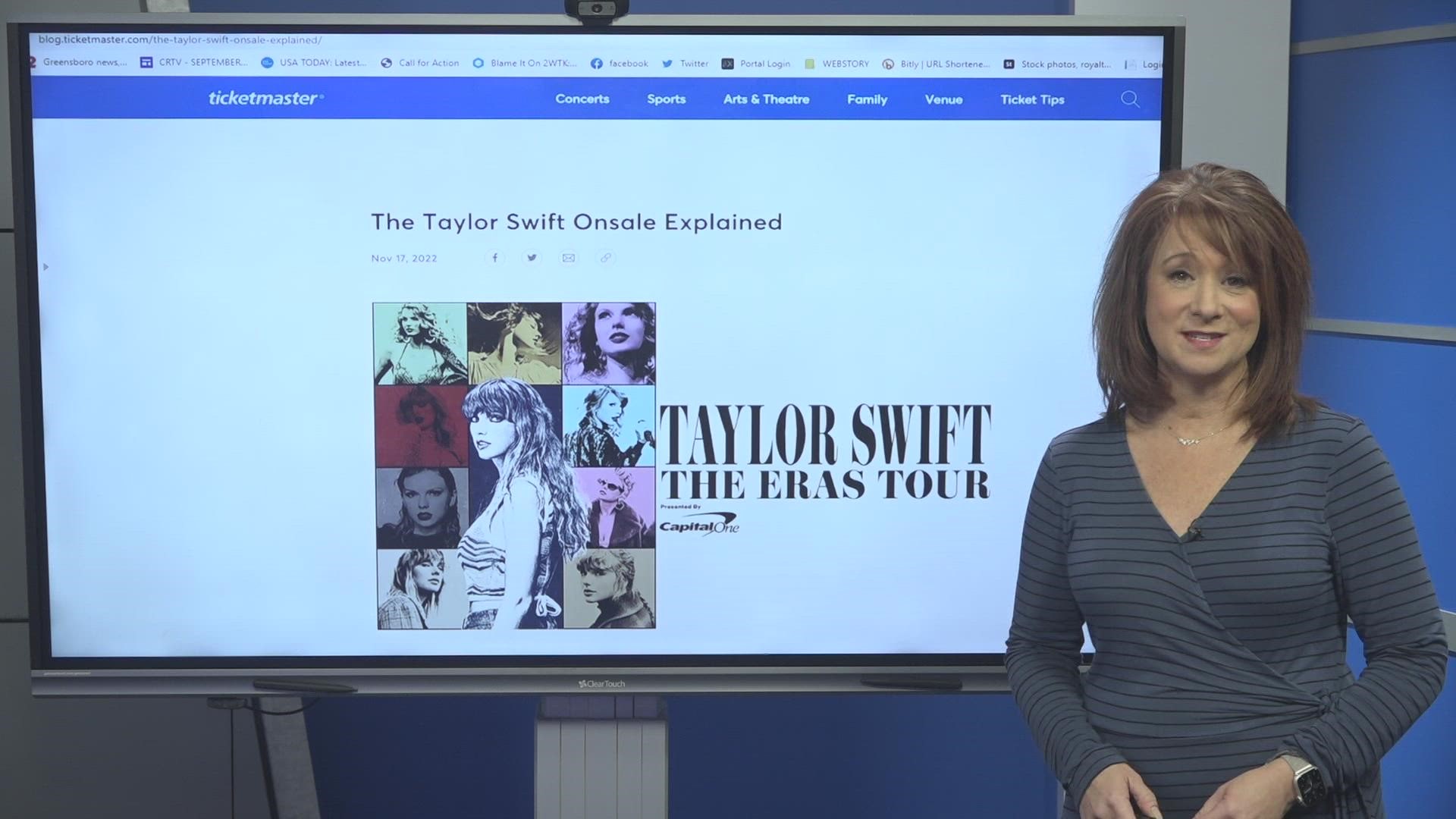GREENSBORO, N.C. — The Taylor Swift concert ticket sale did not happen Friday.
Ticketmaster confirms, all the tickets are gone. The message on the website reads:
Due to extraordinarily high demands on ticketing systems and insufficient remaining inventory to meet that demand, the public on-sale for Taylor Swift The ERAS tour has been canceled.
The company said the pre-sale event Tuesday was full of computer glitches and software crashes and a second pre-sale event Wednesday was the same.
With no open ticket sales, thousands of fans are empty-handed and frustrated and lawmakers are calling for investigations.
Tennessee’s Attorney General Jonathan Skrmetti was the first to say there could have been an antitrust issue. North Carolina's Attorney General Josh Stein then tweeted this:
Breaking: You're not on your own kid.
The NC AG is investigating Ticketmaster for allegedly violating consumer rights and anti-trust laws.
The Taylor Swift ticket issue started all of this, but really, this is for any fan that buys tickets to concerts or sporting events.
“When there is a company that becomes a monopoly they use it to drive up prices and drive down quality. Ticketmaster is essentially a monopoly when it comes to the ticketing industry and I want to make sure they are in full compliance with our state laws,” said Josh Stein, NC Attorney General.
How does the process start? It's a letter. The Attorney General sends an official letter to Ticketmaster and Live Nation, with a bunch of questions for them to answer.
“It will focus on do they have practices to allow for competition for ticketing and venues. What did they do in this particular instance as it relates to Taylor Swift because maybe they haven't done all they need to in order to keep their computer systems up to date, because they're the only show in town,” said Stein.
When Ticketmaster answers, the NC AG will review it and see if there is any violation of the law.
“They will answer the letter. Legitimate businesses always answer the letter, they have a legal requirement to answer the letter and if they don’t they can be held in contempt of court,” said Stein.

